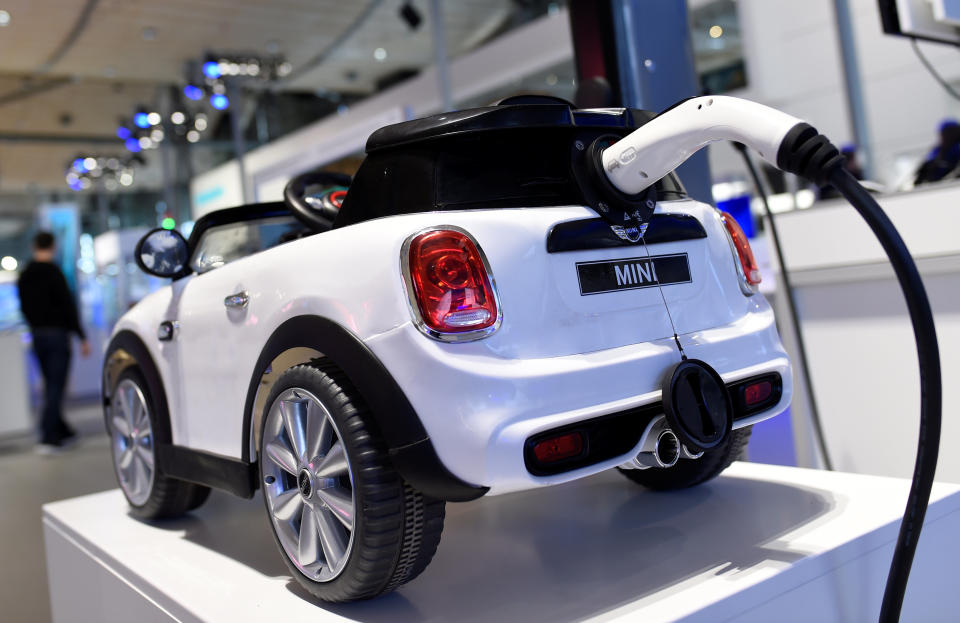Germans are highly sceptical about whether e-cars will succeed

While German carmakers Volkswagen, BMW, and Daimler are heralding their commitment to battery-powered vehicles and rushing to launch electric versions of their cars, German people themselves appear to be a lot less optimistic about the future of electric vehicles.
A survey commissioned by Germany energy company E.ON and research firm Kantar EMNID found that of the 78% of Germans currently planning to buy a car, just 16% will go for an electric option. Out of those who said they would not buy an e-car, the main reasons for deciding against it were battery range and purchase costs, according to E.ON.
One-third of Germans believe electric cars will never outnumber the amount of internal combustion engines on the streets of Germany, according to the survey. Additionally, only 13% of German respondents said they could imagine electric cars overtaking conventional ones in the next 10 years.
Electric cars only accounted for around 1% of new car registrations in Germany in 2018.
The survey canvassed 10,000 people in Denmark, Germany, France, the UK, Italy, Romania, Sweden, the Czech Republic, Turkey, and Hungary.
READ MORE: Profits triple at SoftBank-backed startup OakNorth
Despite the increasing variety of e-cars on the market, and a steady growth in the charging-station infrastructure, Germans are much more pessimistic than, for example, survey respondents in Turkey, where 43% said that electric cars will outnumber petrol ones in the next decade. In Italy, 37% of respondents believed that as well. Eastern European countries such as the Czech Republic and Hungary were about as pessimistic as the Germans.
Germany needs a holistic approach to make the switch to e-mobility, E.ON board member Karsten Wildberger said in a statement. The country needs to bring together “the energy industry with its technical and network competence,” as well as “innovative offers from the automotive industry and government start-up support,” Wildberger said.
The German government recently said it wanted to extend its tax incentives for e-cars and hybrids for another 10 years. But the country has a long way to go before it catches up with neighbouring Norway, where — thanks largely to tax exemptions — e-cars accounted for nearly 60% of all new cars sold in March. Reuters reported this week that electric car sales in 2018 in Norway have hit a record 31% market share.
READ MORE: Apple’s new Goldman Sachs credit card could be part of deeper push into finance

 Yahoo Finance
Yahoo Finance 